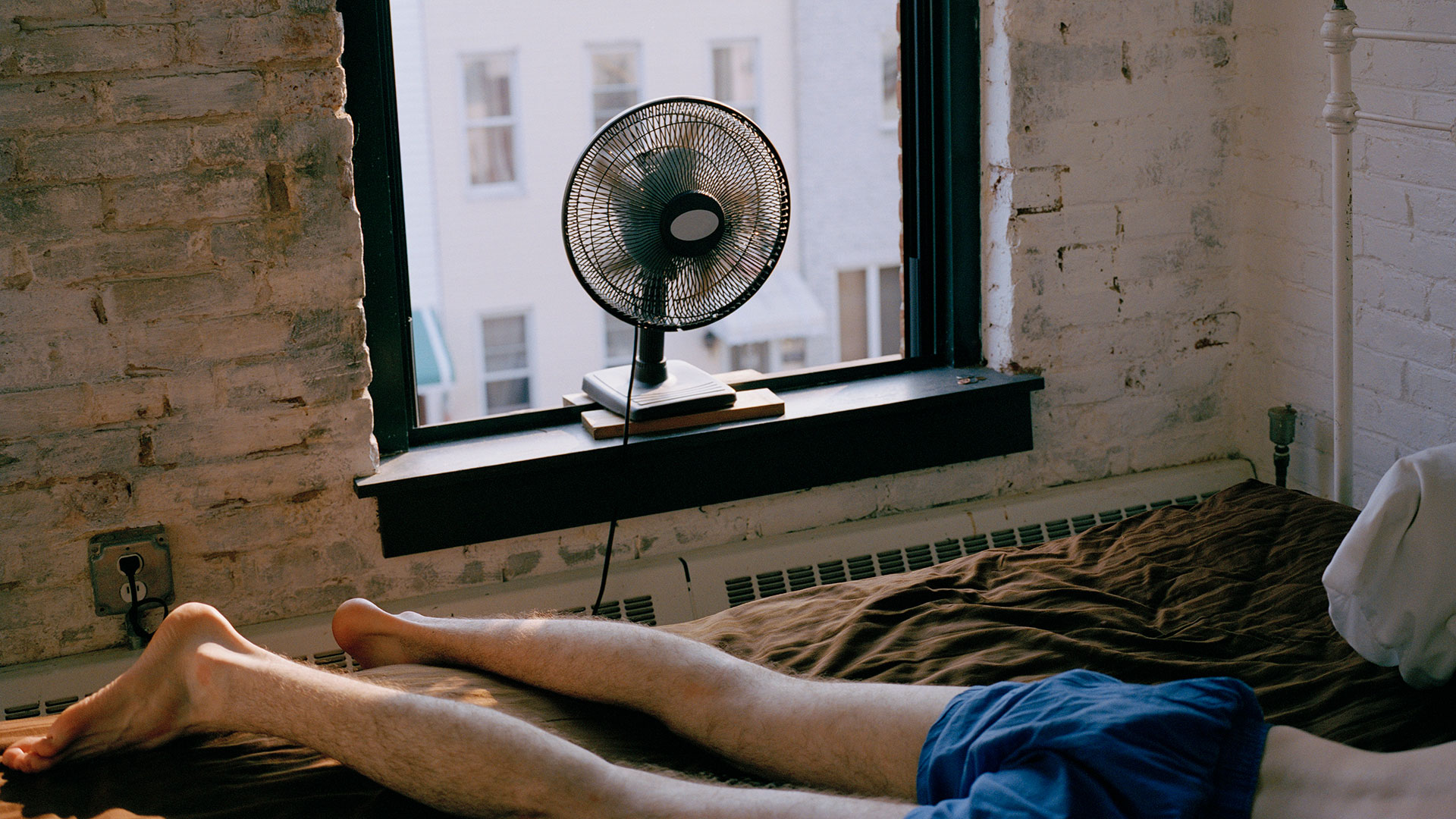6 cool rules for sleeping in a heatwave
Top tips to help you handle the heat


The UK is feeling the heat this week, and while the opportunity to shed some layers and head to the park with an ice lolly is welcome, it's not so much fun when it comes to getting a good night's sleep. Sleeping in a heatwave is rarely easy – especially if you've got a window that gets the sun in the afternoon and turns your bedroom into an oven – but there are some tricks to employ that can help.
A key thing to do first is to make sure your bed setup is right. If you're still sweating it out under a winter-weight duvet, what are you doing? Now's the time to swap to a lighter tog (our best duvet guide includes options that let you combine different weights for a duvet that'll last you through the whole year). Similarly, if you've got a mattress that is trapping heat – as some cheaper or older memory foam mattresses can have a nasty habit of doing – head to our best mattress guide for some alternatives that do a better job of temperature regulation.
Assuming your bed setup is all as heatwave-friendly as it can possibly be, there are some more things you can do to help you handle the heat overnight. Here's exactly how to sleep when it's hot. (You might also want to make sure you aren't falling for these common mistakes.)
1. Close your windows during the daytime
Prepare your bedroom by getting it as cool as possible before you get into bed. While you might be flinging open the windows elsewhere in the house, it can help to keep your bedroom windows closed and the curtains drawn during the day, to stop the hot air getting in. Then, when night draws in and the temperature outside drops, open your windows to enjoy that fresh breeze. (Or, if breezes are in short supply, create your own by investing in one of the best fans around.)
It's probably best to still keep your curtains closed, so your room is dark as you're trying to drop off, and you avoid a rude awakening when the sun rises. "Ensure your bedroom can be completely dark when you are attempting to sleep," advises Dr Rebecca Robbins, a Sleep Scientist and in-house expert at Savoir Beds). "Whereas bright light wakes us up, darkness is what allows the sleep-inducing hormone melatonin to secrete in the brain."
2. Get cosy before bed (no, really)
This next tip is a little counterintuitive: it helps to warm up a bit as you prepare for bed. "Cuddling up with a warm blanket or taking a warm shower or bath before bed can help in reducing your core temperature by encouraging your blood vessels to dilate, thus losing excess body heat," says Theresa Schnorbach, Sleep Expert at Emma (the bed brand behind the best memory foam mattress, by our reckoning).
3. Cool down pulse points
A quick way to cool the body down is to splash cold water on pulse points, such as your wrists or the sides of your neck. "Your body's blood vessels will react to the cool sensation and instantly bring your core temperature down," explains Theresa. Avoid using this technique on the hands and feet themselves, though, as this can actually stop you from dropping off.
Get all the latest news, reviews, deals and buying guides on gorgeous tech, home and active products from the T3 experts
4. Make an inverse hot water bottle
If you're really, really hot, create a cold pack to snuggle up with by wrapping an ice pack in a cloth or towel and taking it to bed with you. "Hold it against places where your blood flows closest to the surface of your skin and it will quickly cool you off," suggests Theresa. Another option is to fill your hot water bottle with cold water, or even just use a damp flannel.
5. Wear cotton PJs (or nothing)
Many people like to strip off to their birthday suit when trying to sleep in the heat, but if you prefer to be wearing something, you should opt for PJs made from natural fibres – probably cotton. "Natural cotton is your best bet as cotton actually helps your skin breathe, while absorbing your sweat during the night," explains Theresa. This tip extends to your bed linen too. "Swap heavy bed clothes or linens in favour of lighter fabrics. Natural particles and fibres are generally better for breathability, so select these where possible," adds Rebecca.
6. Don't eat late in the evening
As a general sleep hygiene thing, it's also a good idea to avoid eating late in the evening, so your body's not still busy digesting your dinner as you're trying to drop off, as this can keep you awake for longer. (Step away from that curry takeaway menu too – spicy food has been shown to increase your body temperature, according to Theresa.)
Rebecca says the ideal situation is to opt for a hearty breakfast and lunch, but a lighter dinner. "A dinner that is too heavy or consumed too close to bedtime can interfere with our ability to fall asleep," she explains. "Endeavour to have your last meal 2 hours at least before bed. Then, transition to soothing herbal tea."

Ruth was T3's Outdoors and Wellness Editor from 2020 to 2022, covering hiking, camping and adventure sports kit, as well as mattresses, sleep accessories, yoga and general wellness. She's now a Homes Editor at sister site TechRadar, where she deals in all things air (vacuum cleaners, robovacs, fans and air purifiers), and hair (hair dryers, straighteners and stylers).